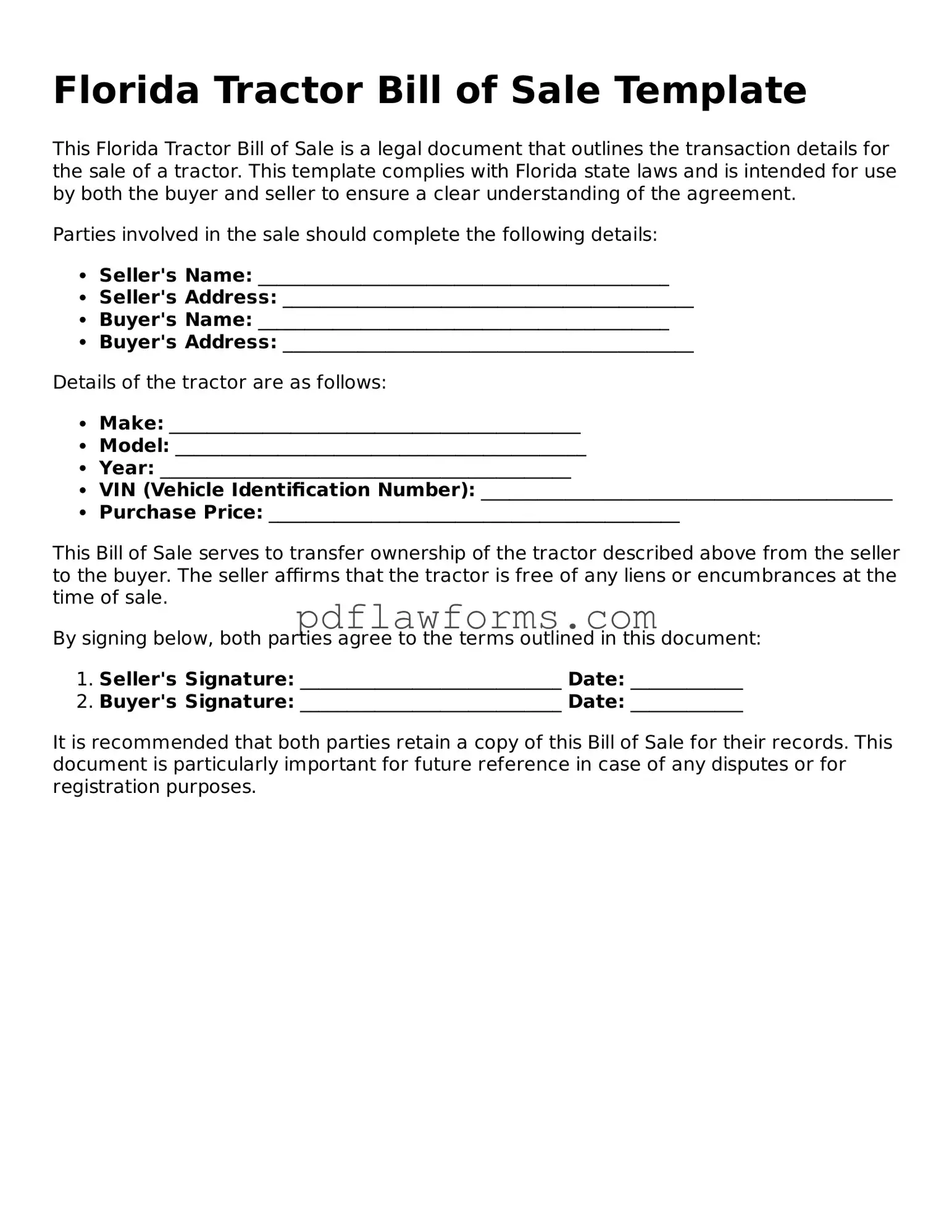When filling out the Florida Tractor Bill of Sale form, many individuals make common mistakes that can lead to complications down the line. Understanding these pitfalls can help ensure a smooth transaction. One frequent error is failing to include all necessary details about the tractor. Information such as the make, model, year, and Vehicle Identification Number (VIN) is crucial. Omitting any of these details can create confusion and may complicate future ownership verification.
Another mistake often seen is not providing accurate seller and buyer information. Both parties must include their full names, addresses, and contact information. Incomplete or incorrect details can lead to disputes or issues with registration later on. It’s essential to double-check that all names are spelled correctly and that addresses are current.
People sometimes neglect to specify the sale price of the tractor. This figure should be clearly stated on the form. Without it, the bill of sale may not serve its purpose in proving the transaction took place. Additionally, some individuals forget to date the form. The date of the transaction is important for legal and tax purposes, so it should never be overlooked.
Another common oversight is not having the bill of sale signed by both parties. A signature acts as a confirmation that both the buyer and seller agree to the terms of the sale. Without signatures, the document may not hold up in a dispute. Furthermore, some people fail to provide a copy of the bill of sale to the buyer. It’s good practice to give the buyer a copy for their records, as they will need it for registration.
In some cases, individuals may not understand the importance of including any warranties or guarantees. If the tractor is sold “as is,” this should be clearly stated. Conversely, if there are any warranties, those need to be detailed as well. Clarity on these points can prevent misunderstandings later on.
Lastly, individuals often overlook the need for notarization. While not always required, having the bill of sale notarized can add an extra layer of legitimacy to the document. This is particularly important for high-value transactions or if there is any doubt about the authenticity of the signatures.
By being aware of these common mistakes, individuals can better navigate the process of completing the Florida Tractor Bill of Sale form. Taking the time to ensure accuracy and completeness will help facilitate a smoother transaction and protect both the buyer and seller in the long run.

